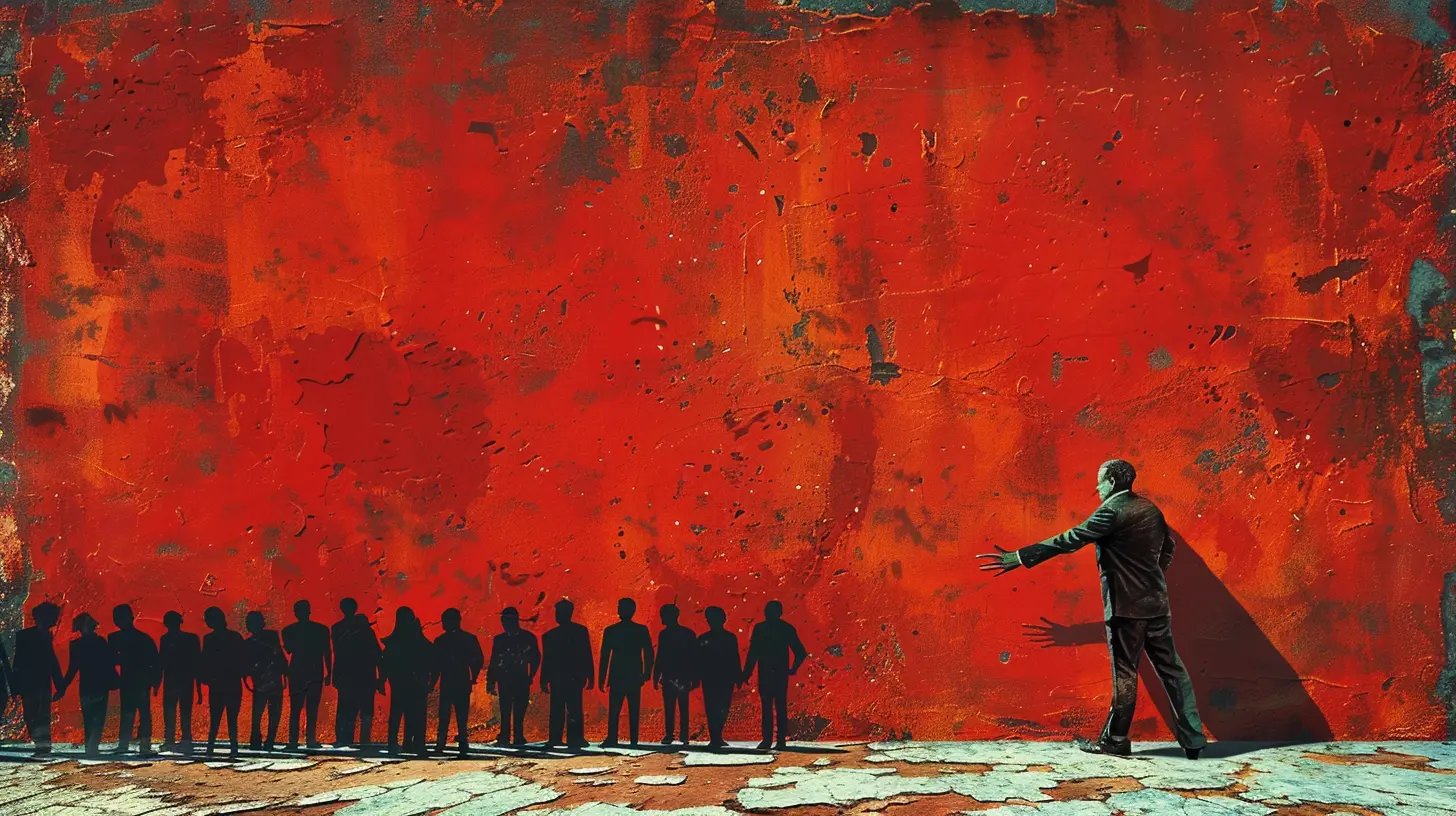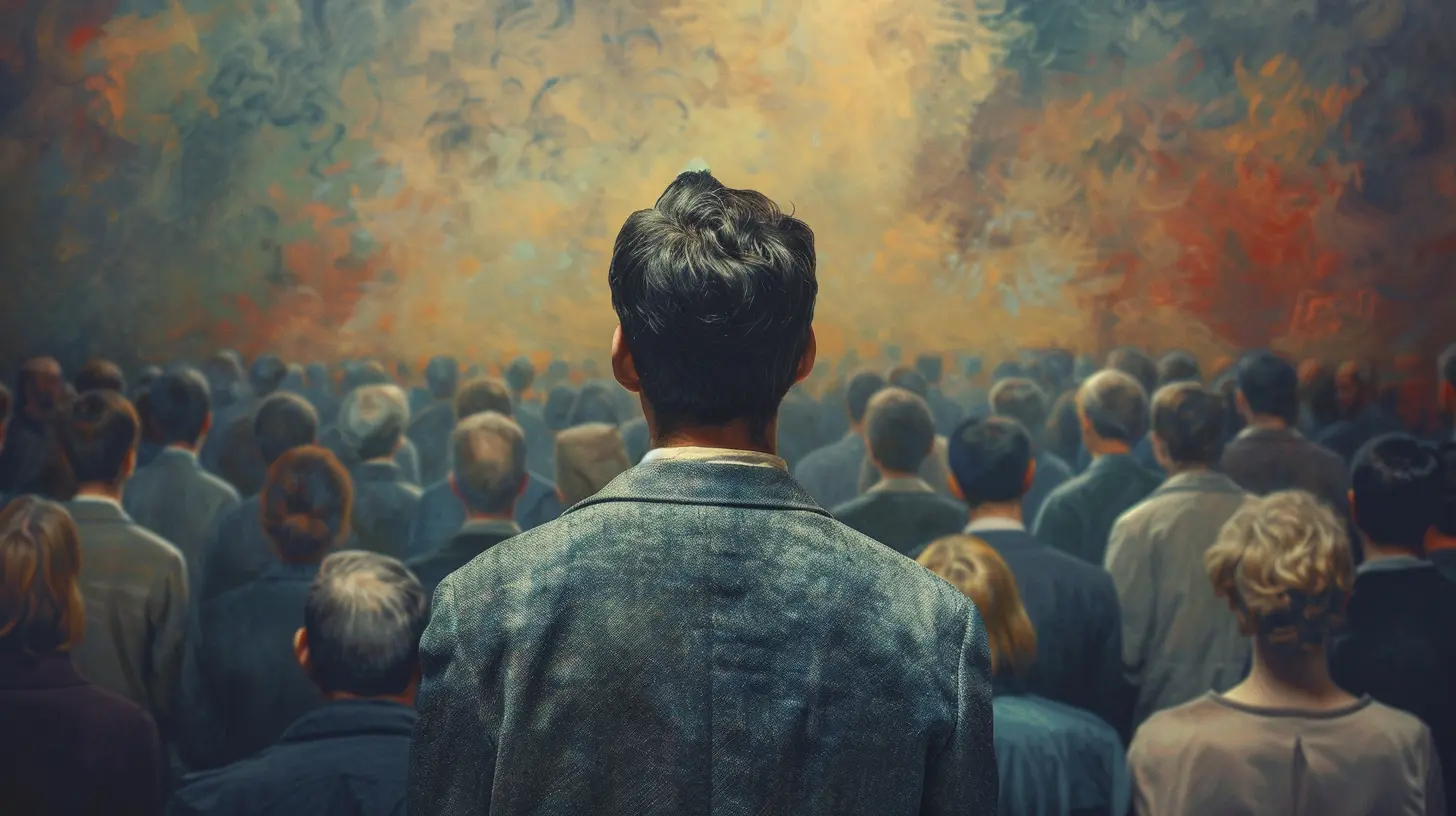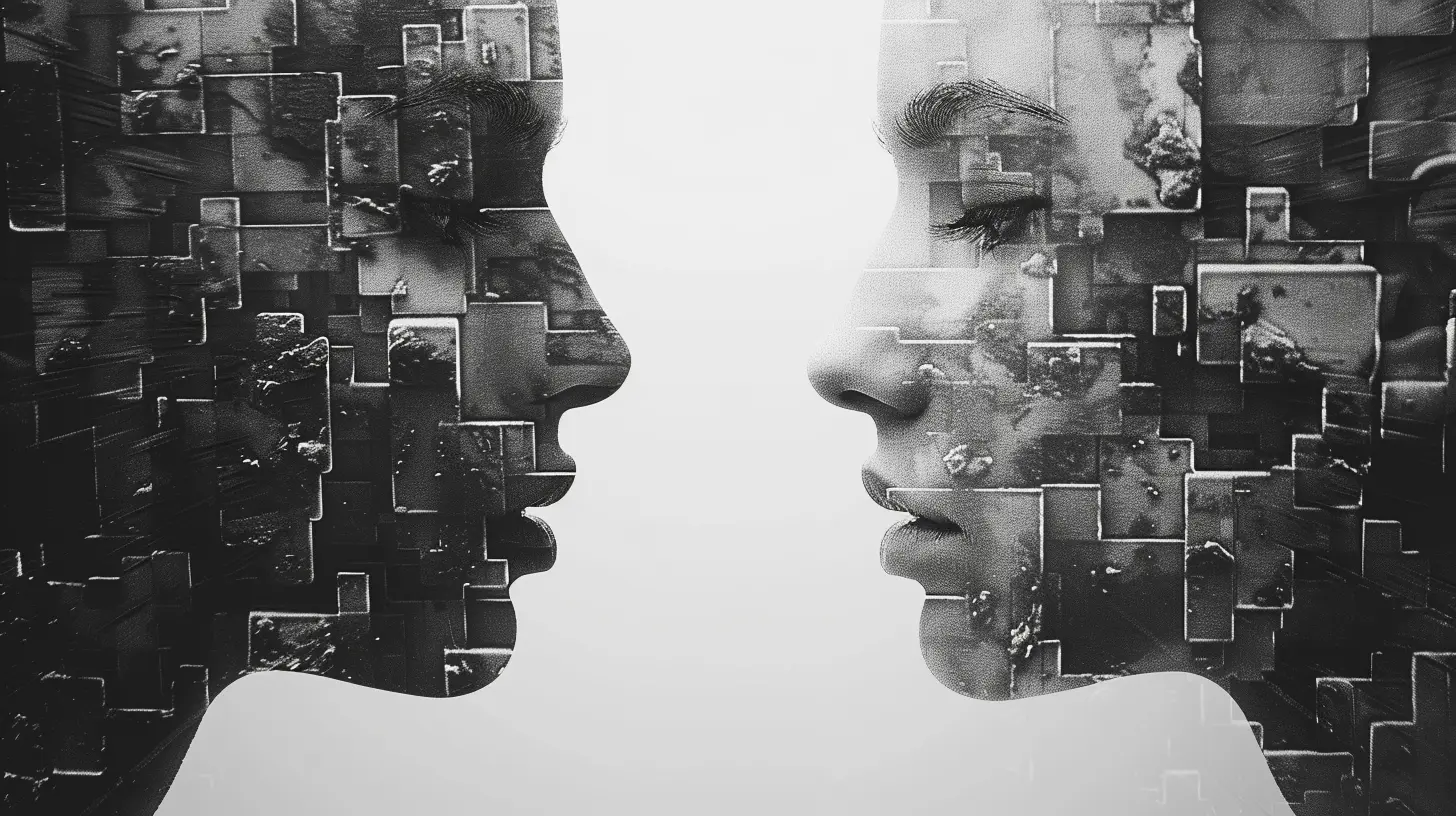Understanding the Psychology of Ostracism and Social Rejection
7 October 2025
Let’s face it — being left out sucks. Whether it's not being invited to a party, getting ghosted by a friend, or watching your group chat light up with plans you didn’t know existed (ouch), social rejection has a way of making you want to crawl under a rock... or maybe become a hermit with Netflix and ice cream as your only friends.
But why does it feel so bad? Like, can't we just shrug it off and move on? Spoiler alert: nope. Our brains treat rejection like a five-alarm fire. It turns out, social rejection isn’t just a punch in the gut emotionally — it’s actually a big deal psychologically and even biologically.
So grab your cozy blanket of curiosity and let’s dive headfirst into the wonderfully awkward, sometimes painful, and completely fascinating world of ostracism and social rejection. Sounds fun, right? (Don’t worry — we’ll make it fun).
What Is Ostracism and Social Rejection Anyway?
Alright, let’s break this down.Ostracism = getting ignored or excluded by others. Think of it as a social cold shoulder.
Social Rejection = being deliberately pushed away. Basically, someone saying “nope, not you."
Both sting, obviously. But they’re not just "bad moments" — they’re psychological landmines.
You see, humans are wired for connection like squirrels are wired to hoard acorns. From an evolutionary standpoint, being part of the tribe meant survival. Back in the caveman days, if you got kicked out of the group, you weren't just chilling alone — you were cougar food.
So when someone excludes you now, your brain kind of freaks out. Even if you're just getting unfollowed on Instagram. Cute, right?
This Is Your Brain on Rejection
Alright, now let’s geek out a little. When you experience social rejection, your brain lights up in some surprising places.The anterior cingulate cortex, which is all up in your biz when you feel physical pain, also activates during emotional pain. So yeah, getting dumped actually hurts. Like, for real. Your brain doesn’t always know the difference between a broken heart and a stubbed toe. Thanks, brain.
Plus, rejection triggers your fight-or-flight system. That means a flood of stress hormones like cortisol — the same stuff your body releases when you're running from, say, a bear. Or, in this case, your ex at a party. Same difference.
On top of that? Your dopamine system gets messy. Dopamine is that sweet, sweet chemical that rewards you for pleasure. But rejection? Major dopamine downer. Basically, it’s a cocktail of suck.
Why We Care So Dang Much
You’re probably thinking: “Okay, brain panic aside, why do I care so much about someone ignoring me at work or not texting back?” Believe it or not, you’re not being dramatic. You’re being human.Here’s the deal:
- We’re born to belong. It’s not just a motivational quote. Organizations, friends, families — we crave groups like bees crave flowers.
- Self-esteem takes a hit. When someone excludes us, we don’t think "they’re just having a bad day.” Nope. We go straight into "there’s something wrong with me." Harsh, but true.
- Rejection threatens identity. We define ourselves through our connections. When someone ghosts us, it's like a mini identity crisis. Who am I if they don’t like me?
Basically, rejection feels scary because it's a threat to who we believe we are and where we think we belong. Fun!
The Different Flavors of Rejection
Ostracism and rejection are not one-size-fits-all. Oh no. There’s a whole buffet of ways to feel unwanted. Let’s take a look at the menu, shall we?1. Direct Rejection
This one’s classic. Someone straight-up tells you you're not wanted. Think: “We don’t want you on our team,” or the ol’ “It’s not you, it’s me” breakup routine. Blunt, painful, and efficient.2. Indirect Rejection
Slightly more sneaky. It’s the slow fade. You’re not officially cut off, but you slowly start getting left out. The invites disappear. The conversations trail off. Radio silence.3. Passive Ostracism
This is the “ignore and hope they go away” method. Like when coworkers conveniently “forget” to add you to the email or your friends whisper just enough that you “accidentally” miss plans. Oopsie?4. Cyber-Ostracism
Yup, even our phones betray us. Ever heard of the “seen” message with no reply? Or watching your friends tag each other in memes while completely ignoring you? Mm-hmm. Virtual rejection still hurts — thanks, digital age!How Ostracism Affects Mental Health
Not to ruin your day, but yeah — ostracism can seriously mess with your mental health. Like, it’s not just a “bad mood" thing. It can lead to:- Depression: Prolonged exclusion can plant the seeds of hopelessness. That little voice that says “What’s the point?” gets louder.
- Anxiety: If you’re constantly wondering when the next rejection will come, welcome to overthinking city. Population: You.
- Aggression: Yep — some people get angry. Rejection can cause people to lash out (hello, Twitter rants).
- Loneliness: Repeated rejection makes people withdraw. If you expect exclusion, why even try? It’s a slippery slope, friends.
The real kicker? Sometimes we self-sabotage after being rejected. We pull away from people before they can reject us again. That’s like burning your couch because one cushion was uncomfortable. Dramatic? Sure. Understandable? 100%.
Why People Exclude Others (It's Not Always About You)
Okay, now that we've talked about how sucky rejection feels... let’s unpack why people do it in the first place. Spoiler: they're not always just evil trolls with trust issues (although, sometimes… yeah).Here are some classic reasons people exclude others:
- Group dynamics: Sometimes people just follow the crowd. If one person starts icing you out, others might follow. Herd mentality in action.
- Power plays: Being exclusive makes some folks feel important. Because nothing screams “alpha” like being petty, right?
- Fear of association: People worry about their own reputations. Associating with you might not “fit the vibe” (eye roll).
- Miscommunication: Yup. Sometimes people exclude you accidentally. Humans are awkward. We mess up.
Bottom line? Rejection isn’t always personal. But try telling that to your brain while you’re crying into your pillow at 3AM.
How to Deal With Rejection Without Losing Your Mind
Okay, enough doom and gloom. Let’s talk survival strategies — because you can bounce back. Better yet, you can turn rejection into rocket fuel. Here’s how:1. Feel the Feels
Let’s not pretend it doesn’t hurt. Cry. Scream into your pillow. Eat your weight in snacks. Honor the pain — just don’t live there.2. Challenge the Story
Rejection writes a nasty little story in your head: “I’m unworthy. I’m boring. I suck.” You need to edit that crap. Ask yourself — is this feeling fact or just fear talking?3. Reframe It
Maybe their rejection says more about them than you. Maybe you’re just not their cup of tea — and that’s okay. You’re not here to be everyone’s favorite beverage.4. Strengthen Other Connections
Don’t get tunnel vision on the one person/group who dumped you. Look at the people still in your life. Rejection hurts less when you're reminded you’re not totally alone. Promise.5. Focus on Your Worth
No one holds the keys to your value. Seriously. You were awesome yesterday, and you’re awesome today — even if people can’t see it through their fog of cluelessness.Building Rejection Resilience (Yes, It's a Thing)
You can’t avoid rejection forever. But you can get better at handling it. Think of it like emotional armor — not so you’re numb, but so you’re not wrecked every time someone ghosts you.Here’s how:
- Practice self-compassion: Be kind to yourself. You’re not a failure — you’re a human being navigating messy relationships.
- Build emotional agility: Let yourself feel pain without being ruled by it. (Easier said than done, but hey, it’s a skill.)
- Improve communication: Honest convos with people in your life can clear up misunderstandings that feel like rejection.
- Set realistic expectations: Not everyone will like you. That’s a them problem, not a you problem.
- Celebrate courage: Every time you show up despite fear of rejection, you’re leveling up. That’s brave work.
The Silver Lining: Rejection Can Be Growth in Disguise
Want to hear something wild?Rejection can actually help you grow. Yep, the thing that makes you cry into your cereal could also be the reason you find your real people, your true voice, and the strength you didn’t know you had.
Think about it. Rejection pushes you to:
- Re-evaluate your relationships
- Define your boundaries
- Strengthen your sense of self
- Seek authenticity over approval
It’s like emotional spring cleaning. Painful? Sure. Necessary? Absolutely. Worth it? 100%.
Now go forth, you resilient superstar. The next time life throws rejection your way, just smirk and say, “Thanks for the plot twist.”
Final Thoughts
So, yeah. Rejection? It’s gonna happen. Ostracism? Unfortunately common. You might get left off of the invite list, unfollowed, ignored, or dumped — and none of it feels good.But now? You know what’s really going on under the surface. You understand the psychology behind it. You’ve got tools. You’ve got insights. Heck, you’ve got a psychological upper hand.
So next time someone tosses rejection your way, remember: you’re not broken. You’re just human. And humans? Oh, we’re scrappy. We bounce back.
And if nothing else? You’ve got this article. And me. And probably a pint of ice cream with your name on it.
all images in this post were generated using AI tools
Category:
Social PsychologyAuthor:

Gloria McVicar
Discussion
rate this article
1 comments
Serenity Sanchez
What a fascinating exploration of ostracism and social rejection! It's intriguing to see how these experiences shape our emotions and behaviors. Understanding the psychological effects can help us foster empathy and build stronger, more inclusive communities. Thanks for shedding light on such an important topic!
October 23, 2025 at 2:38 AM

Gloria McVicar
Thank you for your thoughtful insights! I'm glad you found the exploration meaningful and relevant to fostering empathy in our communities.


